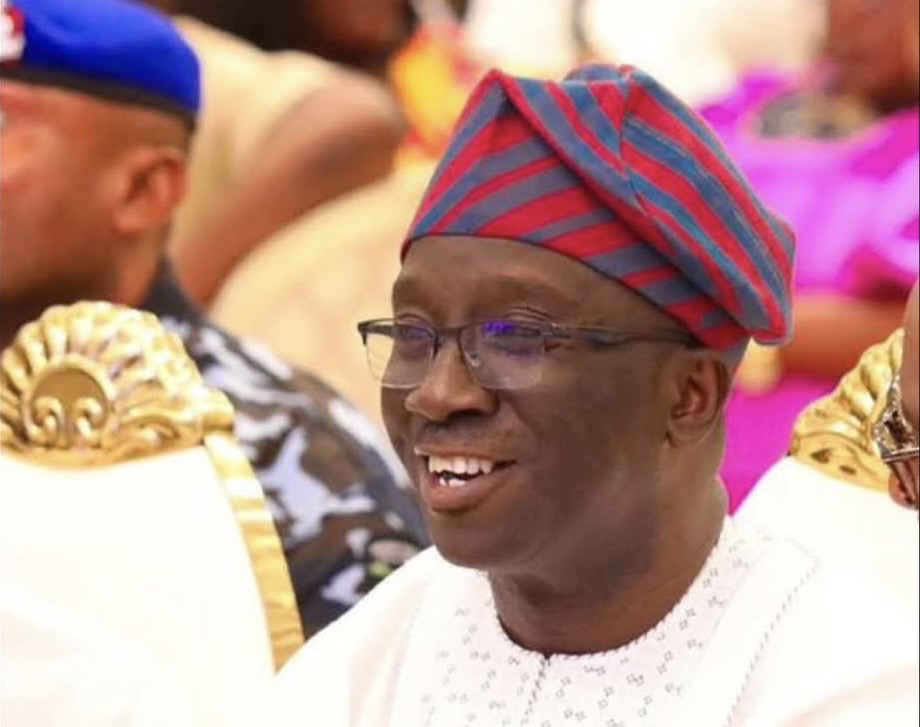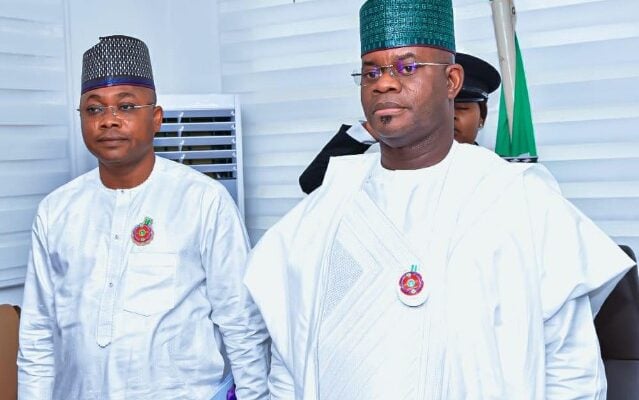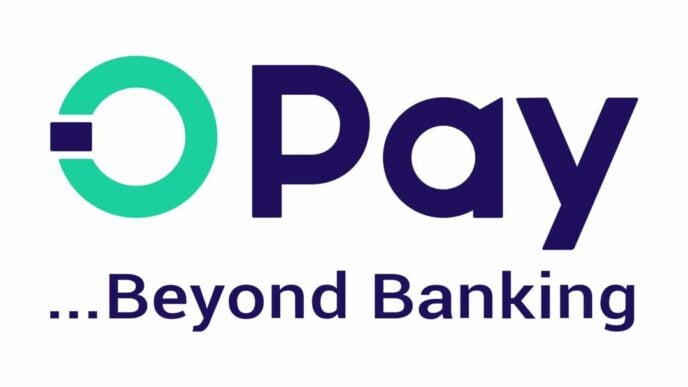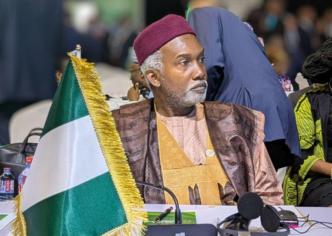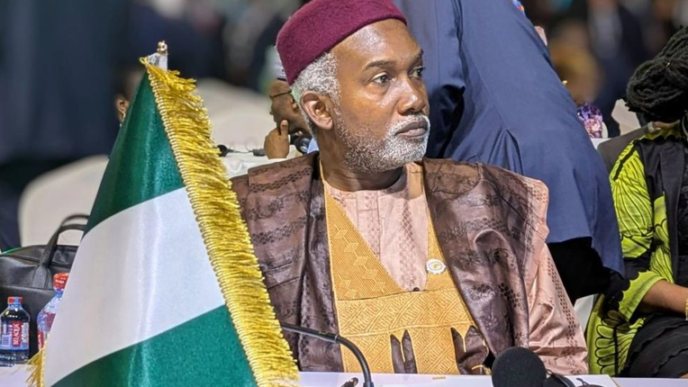BY FRED ITUA
“Leadership is about taking responsibility, not making excuses.” – Mitt Romney.
The first 100 days of any administration serve as a defining period, setting the tone for governance and providing an early glimpse into the leader’s vision, priorities, and capacity to effect change. While the Nigerian constitution grants a governor a full four-year tenure to implement policies and drive development, public scrutiny is fiercest during the formative days. Although this period represents only a fraction of a governor’s tenure, its significance lies in the foundation it lays for long-term transformation. Governor Monday Okpebholo’s first 100 days in office have been marked by decisive actions, impactful policies, and a clear commitment to addressing the most pressing challenges facing Edo state.
From security and infrastructure to healthcare, education, and economic revitalisation, his administration has taken bold steps to reposition Edo state for growth and development. These early achievements reflect a deep understanding of governance, proactive decision-making, and a leadership style rooted in responsiveness to the needs of the people. Measured against both expectations and precedent, Governor Okpebholo has exceeded expectations, proving that governance is not about rhetoric but results.
Advertisement
In just over three months, he has demonstrated an uncanny ability to navigate challenges, assembly and rally his team, and deliver tangible benefits to the people of Edo state. The administration has embodied the essence of proactive governance, reminiscent of great world leaders who seized early opportunities to lay solid foundations for lasting legacies. Like Franklin D. Roosevelt, who transformed America’s economic landscape within his first 100 days in office, Okpebholo has hit the ground running, implementing bold reforms that address the State’s most pressing needs.
Security is a fundamental prerequisite for development. Governor Okpebholo wasted no time in tackling the security crisis that had plagued various parts of Edo state, particularly the rising cases of cult-related violence, kidnappings, and armed robbery. His administration swiftly deployed a special tactical team to areas like Agenebode and Uromi, resulting in the successful rescue of kidnapped victims and the dismantling of criminal hideouts.
Beyond immediate interventions, the governor has also institutionalised long-term security measures. Unlike his predecessor, Governor Godwin Obaseki, who openly expressed frustration over the unchecked activities of confraternity groups in the state — reporting a staggering 150 casualties between January and June 2024 — Governor Okpebholo has taken a more proactive and decisive approach. Rather than merely lamenting the crisis, he has opted for a strategic crackdown on cultism through a collaborative effort with the legislative arm, signaling a firm commitment to restoring law and order. The passage of a new Cultism Prohibition Law, which imposes stringent penalties on cult-related activities, sends a strong message that Edo state will not tolerate lawlessness. Additionally, the procurement of brand-new Toyota Hilux vehicles and 1,000 high-performance motorcycles has enhanced mobility and response time for security agencies.
Advertisement
The reconstitution of the Edo State Security Corps, combined with the recovery of over 5,000 illegal firearms, has significantly strengthened the state’s security architecture. A key aspect of this approach is the integration of this localised security arrangement, which enhances intelligence gathering, fosters community trust, and enables swift responses to security threats. These strategic interventions are already yielding tangible results, with residents reporting improved public safety, reduced crime rates, and a more efficient law enforcement system tailored to the State’s unique security challenges.
The health sector in Edo state has received significant attention within the first 100 days of Governor Okpebholo’s administration. Recognising that healthcare access and quality remain major concerns for residents, he moved swiftly to remove bottlenecks and enhance service delivery.
One of the administration’s earliest achievements was securing 25 hectares of land and a certificate of occupancy for the National Obstetrics Fistula Centre, a critical project that had been stalled for nearly two years. This decisive action not only revives a vital healthcare initiative but also underscores the government’s commitment to addressing maternal health challenges. When completed, the facility will provide specialised treatment for women suffering from childbirth-related complications, significantly improving maternal healthcare, reducing obstetric fistula cases, and enhancing the overall well-being of women in Edo state and beyond. Additionally, it will serve as a medical hub, attracting skilled healthcare professionals and fostering advancements in reproductive health services.
Furthermore, the launch of the IsDB LLF Support to the Malaria Elimination Project, which guarantees free malaria testing and treatment in government hospitals for the next two years, marks a significant milestone in public health intervention. This initiative not only provides critical healthcare relief to thousands of residents — particularly in underserved rural areas — but also strengthens the state’s fight against one of the leading causes of morbidity and mortality. By ensuring early detection and prompt treatment, the program reduces severe malaria cases, prevents avoidable deaths, and alleviates the financial burden of healthcare on vulnerable households. Additionally, it contributes to broader disease control efforts, enhancing overall public health outcomes in Edo state.
Advertisement
The onboarding of 300 vulnerable persons into the Edo State Health Insurance Commission, the digitalisation of health insurance data, and the establishment of a customer support policy reflect a structured approach to healthcare administration. The completion of the Oredo Primary Healthcare Centre, procurement of modern ultrasound machines for all 18 local government areas, and installation of air conditioning units and transformers at the Edo Specialist Hospital further highlight the governor’s commitment to healthcare improvement.
Governor Okpebholo’s administration has matched words with action in the area of infrastructure development. Edo state is rapidly transforming into a construction hub, with multiple road projects, transportation upgrades, and energy initiatives taking shape.
One of the major infrastructure projects currently underway is the construction of a flyover bridge at Ramat Park in Benin City, a strategic intervention aimed at easing traffic congestion and improving urban mobility. This project is set to enhance road safety, reduce travel time, and boost economic activities by facilitating smoother transportation of goods and services within the metropolis.
Additionally, the resuscitation of the Edo transport service with 100 brand-new Hiace buses has significantly improved public transportation. By providing residents with more reliable, efficient, and affordable commuting options, this initiative enhances accessibility to workplaces, schools, and markets, thereby promoting economic productivity. It also reduces the dependence on unsafe or costly alternatives, ultimately improving the quality of life for Edo state residents.
Advertisement
Road construction and rehabilitation projects have been executed across the state, including the Ekpoma-Uromi-Ubiaja Road, Uromi-Onewa-Udomi-Ibhiolulu-Afuda-Idumoza road, and several urban roads in Benin City. These roads will improve connectivity, facilitate trade, and enhance the ease of movement for residents and businesses.
A major milestone in the administration’s infrastructure agenda is the signing of an MOU with the NNPC for a $300 million Condensate Refinery and a $500 million Hydropower Plant at Ikpoba and Ojirami dams. These projects will significantly boost Edo’s energy security, creating jobs and attracting investors.
Advertisement
Additionally, the procurement of modern waste management equipment, including payloaders, trucks, and compressors, has enhanced sanitation efforts, contributing to a cleaner and healthier environment. The revitalisation of the Edo Broadcasting Service (EBS) Ihievbe substation, which had been inactive for nearly a decade, is also a notable achievement in the media and information sector.
Governor Okpebholo understands the importance of agriculture in driving economic growth, reducing food inflation, and providing employment. His administration has taken significant steps to empower farmers, improve food production, and promote sustainable agricultural practices.
Advertisement
One of the most impactful decisions of the administration was the banning of exploitative market unions that had been arbitrarily fixing food prices. This decisive action immediately resulted in a reduction in the cost of staple commodities, providing much-needed relief to consumers, particularly low-income households struggling with rising living costs.
Beyond immediate price reductions, this policy fosters a more competitive and transparent marketplace, allowing genuine market forces to determine prices rather than monopolistic practices. It also empowers local traders and farmers, who can now sell their goods at fair prices without undue interference. Ultimately, this measure contributes to food security, economic stability, and improved livelihoods for both sellers and consumers in Edo state.
Advertisement
The establishment of the Principles of Framework for Responsible and Inclusive Land-Intensive Agricultural Investment (FRILIA) ensures that land acquisition for large-scale farming is done responsibly, protecting local communities while encouraging investment.
The state government has also significantly increased budgetary allocation to agriculture, from N5.9 billion in 2024 to N70 billion in 2025, a remarkable 1,086 percent increase. This funding will support initiatives such as the distribution of fertilisers, cocoa seedling production, veterinary hospital construction, and the expansion of the Livelihood Improvement Family Enterprises in the Niger Delta (LIFE-ND) project.
Education remains a key priority for Governor Okpebholo’s administration. Recognising that a well-educated populace is essential for sustainable development, the government has implemented strategic interventions to strengthen the sector.
A major highlight of the administration’s commitment to education is the increase in monthly subvention to Ambrose Alli University (AAU), Ekpoma, from N41 million to N500 million—an unprecedented 1,119.5 percent increase. This bold intervention ensures that the institution can meet its financial obligations, including the prompt payment of salaries and allowances, thereby improving staff welfare and morale.
Beyond addressing immediate financial concerns, this funding boost enhances the overall learning environment by facilitating infrastructural development, upgrading research facilities, and improving student services. It also positions AAU as a more competitive institution, attracting quality faculty and fostering academic excellence. Ultimately, this investment in higher education contributes to human capital development, equipping students with the skills and knowledge necessary to drive innovation and economic growth in Edo state and beyond.
The government’s decision to reinstate illegally disengaged university staff and initiate the recruitment of additional academic and non-academic personnel marks a significant step toward restoring stability and fairness in the education sector. This move not only corrects past administrative injustices but also strengthens the workforce, ensuring that universities operate optimally with adequate personnel to deliver quality education.
Furthermore, the launch of a recruitment process for 500 teachers in basic and post-basic schools reinforces the administration’s commitment to improving learning outcomes. By addressing teacher shortages, this initiative enhances student engagement, reduces classroom overcrowding, and improves the overall quality of education in public schools.
In addition, the renovation and construction of primary and secondary schools across the state ensure that students learn in safe, well-equipped, and conducive environments. Improved infrastructure leads to better academic performance, higher school enrollment, and reduced dropout rates, particularly in underserved areas.
At the tertiary level, the accreditation of new programs at Edo State Polytechnic, Usen, expands educational opportunities for young people. By offering more specialised courses aligned with industry needs, the institution enhances skill development, employability, and innovation, contributing to the state’s long-term economic growth and development.
Beyond sectoral interventions, Governor Okpebholo’s administration has taken measures to strengthen governance, improve revenue generation, and promote economic inclusion.
The restoration of full statutory rights to the revered Oba of Benin has reinforced Edo’s cultural heritage and traditional leadership. The establishment of the Edo state commission for persons with disabilities has fostered inclusivity, ensuring that vulnerable groups receive the support they need.
Edo’s internally generated revenue (IGR) has also seen a boost, increasing from N8 billion to over N10 billion. This improvement reflects the administration’s commitment to financial discipline and economic sustainability.
Furthermore, the appointment of 38 first-class graduates into the public service talent development programme and the launch of an interest-free loan scheme for 5,000 market women, farmers, and artisans highlight the governor’s focus on human capital development and grassroots empowerment.
Governor Okpebholo’s first 100 days in office have been characterised by decisive leadership, people-centred policies, and a clear roadmap for sustainable development. His administration has demonstrated a commitment to security, infrastructure, healthcare, education, agriculture, and economic growth, setting the stage for a transformative tenure.
As the journey continues, Edo state stands on the brink of unprecedented progress. If his first 100 days are a glimpse into the next four years, then Edo state is undoubtedly on the cusp of a golden era.
Fred Itua is the chief press secretary to Edo state governor.
Views expressed by contributors are strictly personal and not of TheCable.
